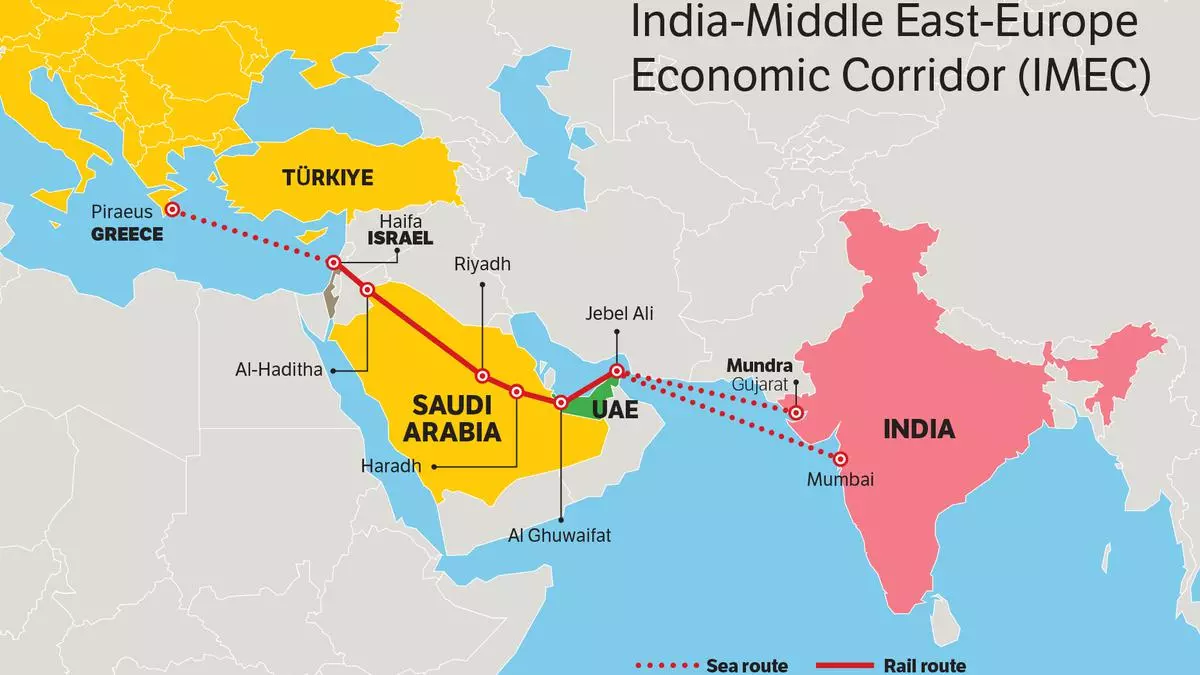Debt-trap diplomacy: what is it? What effects does China’s debt-trap diplomacy have on India’s interests in the surrounding region? (Answer in 150 words)
Answer: Soft power refers to a nation's ability to influence others through non-coercive means, such as culture, values, diplomacy, education, and economic attractiveness. India, with its rich history, diverse culture, and democratic values, has effectively utilized soft power to enhance its globalRead more
Answer:
Soft power refers to a nation’s ability to influence others through non-coercive means, such as culture, values, diplomacy, education, and economic attractiveness.
India, with its rich history, diverse culture, and democratic values, has effectively utilized soft power to enhance its global standing in the following manner:
- Gandhian principles: Gandhiji’s philosophy of non-violence and truth inspired anti-colonial and civil rights movements in Africa and the USA. October 2nd is recognized as the International Day of Nonviolence by the UN.
- Democracy: India’s status as the world’s largest democracy, its commitment to democratic principles, and inclusive governance model contribute to its global soft power.
- Indian diaspora: The influential Indian diaspora enhances India’s image through contributions in diverse fields such as science and technology, finance, etc., fostering respect and promoting India’s culture and education.
- Cultural influence: India’s ancient civilization, cultural diversity, inclusivity, and artistic heritage contribute significantly to its soft power.
- Entertainment industry: Indian film industries’ vibrant storytelling, music, and dance sequences have created a massive international following, projecting Indian values and culture.
- Yoga and ayurveda: India’s ancient practices of yoga and ayurveda have gained global recognition for their holistic approach to health.
- Diplomacy and international relations: India’s commitment to peaceful conflict resolution,disarmament, and participation in UN peacekeeping missions enhances its global standing.
- Addressing global challenges: India’s role in tackling challenges like climate change and the COVID-19 pandemic has been recognized globally.
- Educational and cultural exchanges: India promotes understanding and collaboration through educational and cultural exchanges, attracting international students and creating lasting connections.
The government of India has taken several initiatives to promote India’s soft power, such as:
- It has actively engaged in diplomatic efforts, promoting its values of democracy, pluralism, and non-alignment with the principle of Vasudhaiva Kutumbakam.
- India has promoted its culture through the Incredible India campaign and attracted people from all parts of the world to India. Also, the Indian Council for Cultural Relations has been set up in different parts of the world. It formulates and implements policies and programmes to foster and strengthen cultural relations and mutual understanding between India and other countries and to promote cultural exchange with other countries and people.
- India has taken the role of first responder in humanitarian assistance and disaster relief operations as seen in the Tsunami of 2004, earthquakes in Nepal and Turkey, cyclones in Myanmar and Bangladesh, Vaccine Maitri initiative etc.
- India has taken a leadership position in fighting climate change and has launched several initiatives, such as Lifestyle for the Environment (LiFE) Movement and the International Solar Alliance.
- Through India’s efforts, International Day for Yoga was declared on 21st May to celebrate the role of yoga in holistic health and well-being.
- India’s developmental and connectivity projects in countries like Afghanistan, Bangladesh, Bhutan, Nepal, Sri Lanka, and Maldives have made a positive contribution towards better connectivity and has improved people’s socio-economic lives.
- India holds Pravasi Bharatiya Diwas each year to celebrate the achievements of the Indian diaspora and recognize their contribution to national development.
- India has instituted education and training programmes for students from other countries to receive quality education in the fields of science, technology, administration, military, etc.
Although India’s soft power has created a favourable image of India in the world, to truly emerge as a leading power in the world, India must ensure that it continues on the path of higher economic development, technological progress and modernisation of the military.
See less
 India’s relationship with Europe has become a key component of its international strategy. As India seeks closer ties with European countries, it faces the challenge of dealing with the continent’s diverse and sometimes contradictory landscape. This engagement is not solely about economic gains or political alliances; it involves understanding and addressing the unique complexities that define Europe. Let’s delve into the different aspects of this relationship in a more detailed and straightforward manner.
India’s relationship with Europe has become a key component of its international strategy. As India seeks closer ties with European countries, it faces the challenge of dealing with the continent’s diverse and sometimes contradictory landscape. This engagement is not solely about economic gains or political alliances; it involves understanding and addressing the unique complexities that define Europe. Let’s delve into the different aspects of this relationship in a more detailed and straightforward manner.
Answer: Debt-trap diplomacy is an international financial relationship where one creditor country consciously extends excessive credit to another country with the intention of extracting economic or political concessions from the debtor country when it is unable to honour its debt obligations. ChinaRead more
Answer: Debt-trap diplomacy is an international financial relationship where one creditor country consciously extends excessive credit to another country with the intention of extracting economic or political concessions from the debtor country when it is unable to honour its debt obligations. China’s debt-trap diplomacy with respect to India’s neighbouring countries has gained significant attention in recent years. For example, China took Sri Lanka’s Hambantota port on a 99-year lease, on account of Sri Lanka’s failure to pay Chinese debt. Further, Myanmar has 40 percent of its total debt to China with high interest rates. Its impact on India’s interests in the neighbourhood:
India is looking to maintain its influence in the region and counter the growing debt-trap initiatives of neighbouring China via cooperative strategies and humanitarian aid. India has also been advocating for transparent and sustainable lending practices and promoting regional cooperation mechanisms that uphold principles of sovereignty, inclusivity, and respect for international norms.
See less